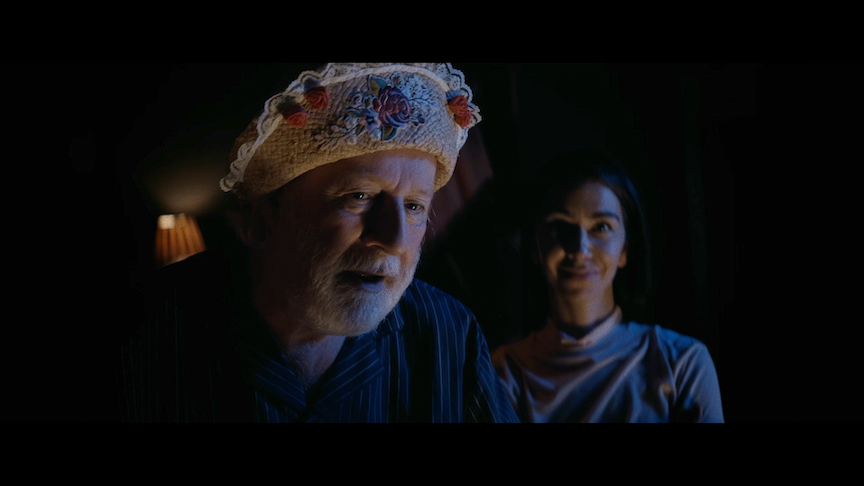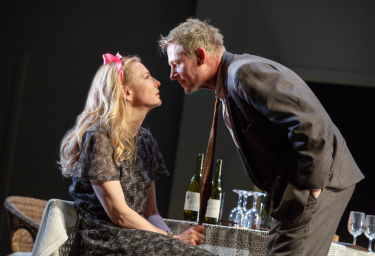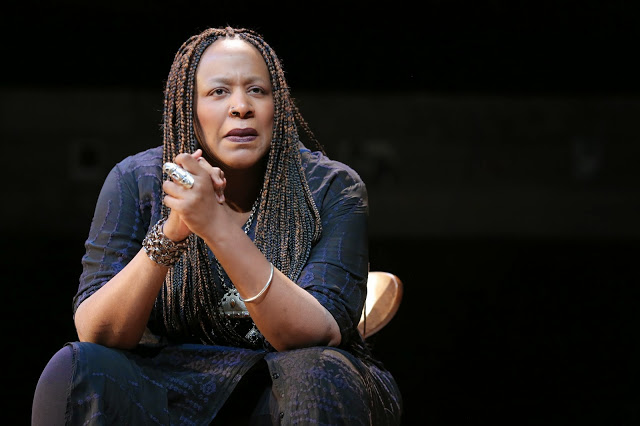Review By Bart Greenberg
An intense early middle-aged woman comes to the door of a dreary studio apartment where an elderly man is hiding.. They clearly have a past, but what that is the playwright chooses to obscure to begin with. Are they father and daughter? Past lovers? Both? Neither?
This is just the first of the mysteries in Marina Carr’s play The Cordelia Dream, a complicated exploration of two rival classical composers who happen to be related. And that is just the conflict on the surface; through two acts of battle, affection, creativity, tragedy, and spirituality, we see a mutually destructive pattern play out.
Carr is one of Ireland’s most acclaimed living playwrights, and this specific work was originally commissioned by The Royal Shakespeare Company and subsequently produced at The New Theatre, Dublin, where this video was filmed. The New York based Irish Repertory Theater Online sponsors this streaming broadcast via their website, Irishrep.org through August 8, 2021. Although it is clearly conceived as a film, the camera barely ventures outside the room in which the older musician lives, with only one filmic effect used at the end of the far more impressionistic second act.

Under the guidance of director Joe O’Byrne, actors Stephen Brennan and Danielle Ryan remain committed to their less than pleasant characters, finding both the depth of black emotions and rare radiance in this script. Darkness and light are indeed a major theme in the work – manifested in powerful visuals throughout. The apartment that the Man (the characters remain unnamed throughout) hides in, is as oppressive and gloomy as possible becoming a menacing presence rather than just a background to the story. The Woman dresses in white in both acts, but that doesn’t mean that she is the hero necessarily.
References to the Shakespearian tragedy King Lear, concentrating on the relationship between the brave/foolish ruler and his truth-telling/victim daughter, abound. Whose death is the true tragedy? Who has the upper hand? How the two characters in the outer play view their prototypes reveal much about their wounds and angers. There is not a direct parallel between the two dramas but the more recent is granted extra emotional resonance by the perspective.
The playwright does not tie her work up in neat endings and clarifying bows. We never learn many of the debated truths: who is the superior composer, who is a more successful parent (yes, the Woman has children of her own, and yes, the Man has children beyond this one daughter), who has sacrificed more, and even who is visualizing the dream-like second half. With echoes of Strindberg and Shaw, Ibsen and Synge, Carr evokes them all in minutes without copying any of them, creating a world that is uniquely hers.






















